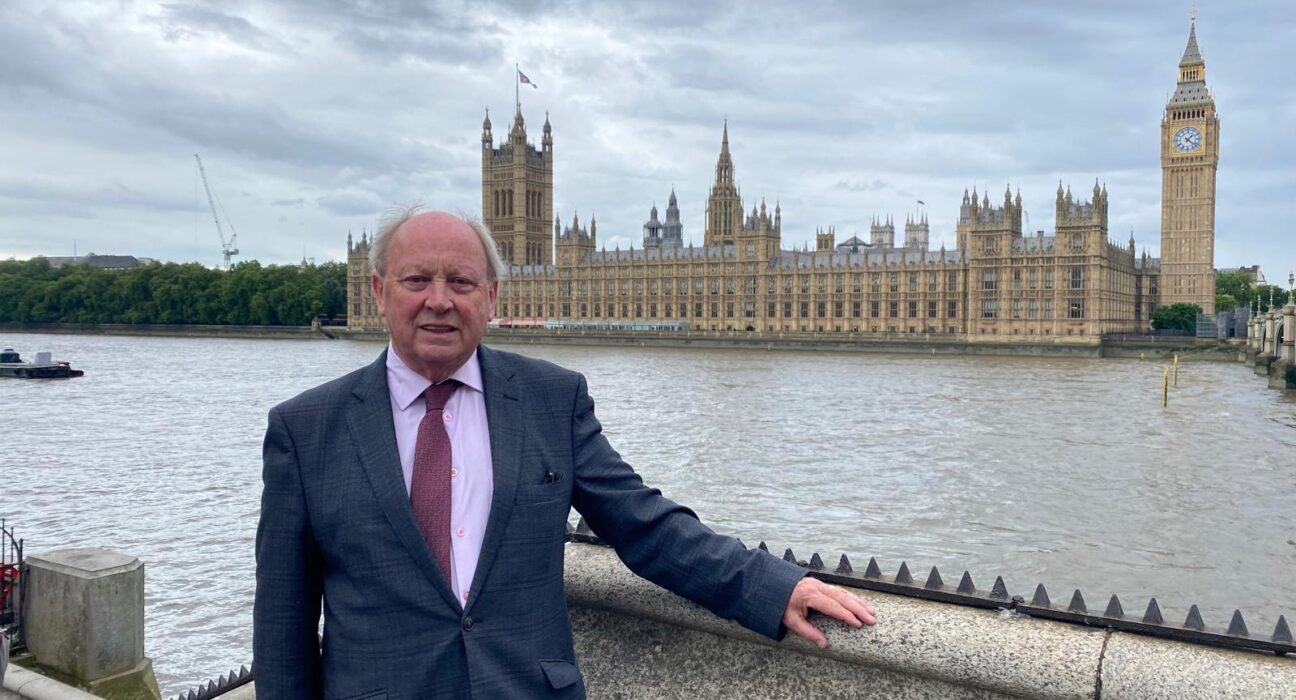Jim Allister KC MP responds to the commencement of the enforcement of the West – East Irish Sea Border from today, 25 February.
“For years we were told that the Irish Sea border was a one-way issue and that while goods moving from GB to NI would be subject to fettered access, that at least goods could move freely from NI to GB.
“That was always a nonsense because if the border was not on the international border there would have to be a way of checking goods to differentiate those coming from the Republic from those coming from Northern Ireland.
“Today we will begin to see it enforced on goods going from Northern Ireland to Great Britain.”
In coming to terms with this important date in the division of the UK Mr Allister has highlighted two key implications:
- New Export Procedures Dividing the United Kingdom
“Under the mis-named Windsor Framework (UK Internal Market and Unfettered Access) Regulations 2024, published with the Safeguarding the Union deal, export procedures are to be applied to the movement of NI goods from NI to GB in five different areas for the first time.
“No matter how minimal the effects, they still amount to cementing in the Irish Sea border because no such export procedures are required for the movement of any goods within the rest of the UK. This is wrong!
2. Recognition that a Hard Border is Not Necessary
“It would seem that having submitted their customs and SPS forms electronically in advance, lorries will be told, before leaving home, whether to attend an inland border control posts or other place away from the border, including their destination, for checks.
“This arrangement removes any justification for the Irish Sea border. It was only imposed because we were told there could not be a hard border on the actual international border and so the border must be moved to the Irish Sea. However, the revelation – through these new arrangements – that it was not necessary to have a hard border across the island of Ireland in the first place, because checks can take place elsewhere, is a game changer.
“Going forward the government has to explain why, knowing: i) that such a solution is workable, and ii) that the proportion of goods entering the Republic from Northern Ireland in 2020 was tiny (only worth 0.003% of EU GDP in 2020), they agree with a border ‘solution’ that is giving the EU the right to both make Northern Ireland an EU colony in 300 areas of laws and then imposing a hard border interrupting a far greater flow of goods from one part of the UK, GB, to another, NI.
“Moreover, the act of running a border, while removing hard infrastructure from that border, constitutes a very significant step towards Mutual Enforcement, the solution proposed by my Bill and which was first set out within the EU by Sir Jonathan Faull who served as EU Commission ‘Director General of the Task Force for Strategic Issues related to the UK Referendum’, together with Prof JH Weiler and Prof Daniel Sarmiento.
“The Government should now abandon introducing the next part of the border, the Parcels Border, on 31 March and work to replace the Irish Sea border with Mutual Enforcement, the only morally acceptable solution because it avoids a hard border without disenfranchising 1.9 million people and disrespecting the territorial integrity of the UK.”
Notes to Editors
Details about the application of the West -East Irish Sea Border from tomorrow can be found: Moving non-qualifying Northern Ireland goods from Northern Ireland to Great Britain – GOV.UK
The new export procedures being applied to some goods moving from NI to GB are set out by S. 45B of the Internal Markey Act, inserted by the Windsor Framework (UK Internal Market and Unfettered Access) Regulations 2024
The regulations that make provision for a border without hard infra-structure on the border are: The Official Controls (Amendment) Regulations 2024
Mr Allister’s Mutual Enforcement Bill can be accessed: European Union (Withdrawal Arrangements) Bill – Parliamentary Bills – UK Parliament
The Five Categories to which export procedures will be applied to goods moving from NI to GB are:
‘In respect of all goods moving from Northern Ireland to other parts of the United Kingdom’s internal market, the United Kingdom confirms that export procedures under Regulation (EU) No 952/2013 will apply only where goods:
- are placed under a procedure listed in Article 210 of that Regulation,
- are in temporary storage in accordance with Article 144 of that Regulation,
- are subject to provisions of Union law falling within the second sentence of Article 6(1) of the Windsor Framework1 which prohibit or restrict the exportation of goods,
- are placed under the export procedure within the Union in accordance with Title V and Title VIII of that Regulation, or
- do not exceed EUR 3 000 in value and are packed or loaded for export shipment within the Union, in accordance with Article 221 of Regulation (EU) No 2015/2447.’

